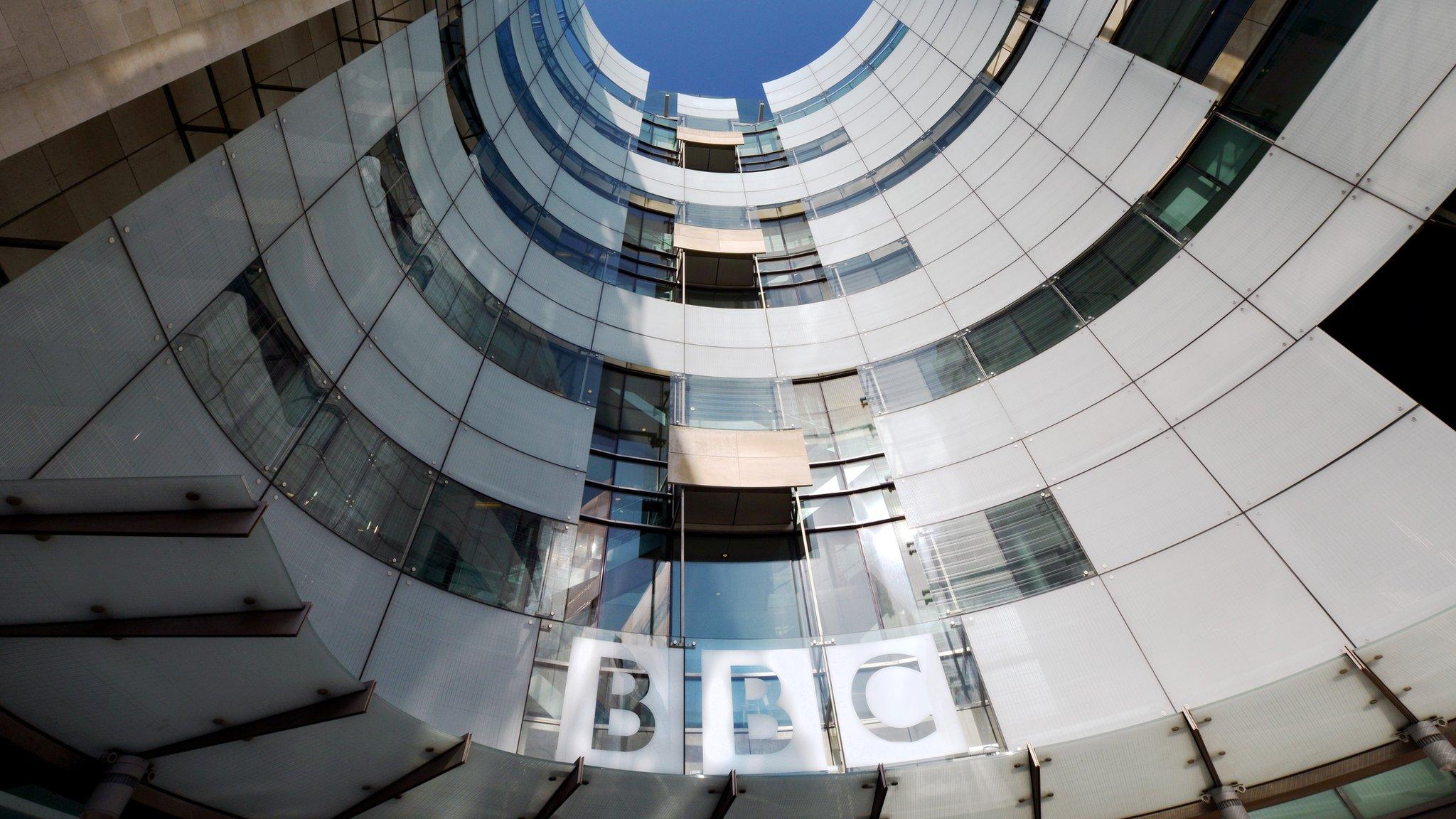BBC TV licence: Over-75s 'richer' than when policy began
- Published
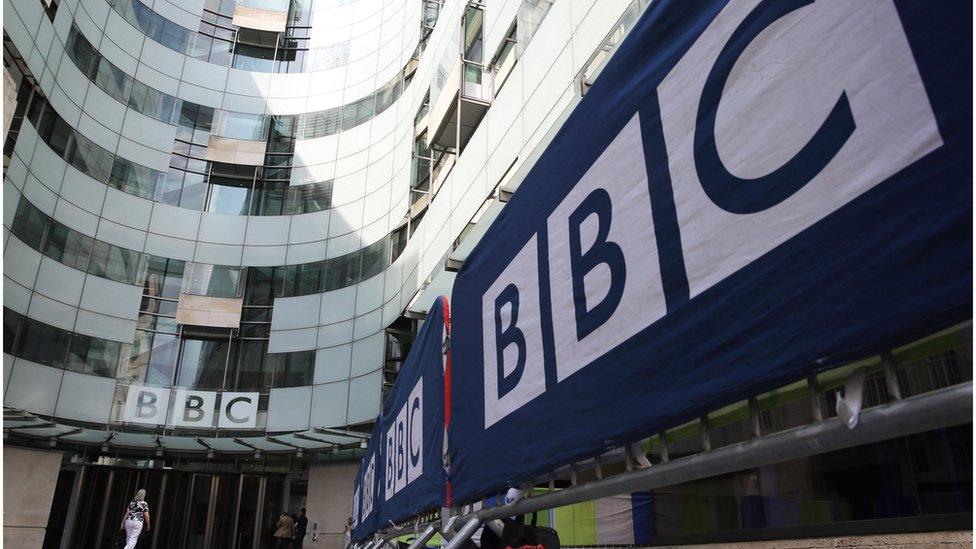
The exterior of the BBC's New Broadcasting House building
A report looking at free TV licences for the over-75s suggests older households have seen "a marked improvement" in their living standards since the policy was introduced.
The BBC-commissioned report said pensioners are now less likely than any other age group to live in poverty.
The government began funding free TV licences for the over-75s in 2000.
In 2015 it was decided the concession would be paid for in future by the BBC.
According to the report by Frontier Economics, external, which was commissioned to carry out the research, almost half (46%) of households with someone aged 75 or more were among the poorest in terms of incomes in 2000.
By 2017, that proportion had fallen to fewer than one in three (32%).
The paper says this has come about "because incomes of over-75 households have grown much more rapidly than average".
It goes on: "Incomes, wealth and life expectancy of older people have improved significantly, pensioner poverty rates have fallen, and older households report higher well-being on a range of metrics."
The government's contribution to the free TV licence is being phased out by 2020. Parliament has given the corporation the duty to consult on what the policy should be for the older population thereafter.
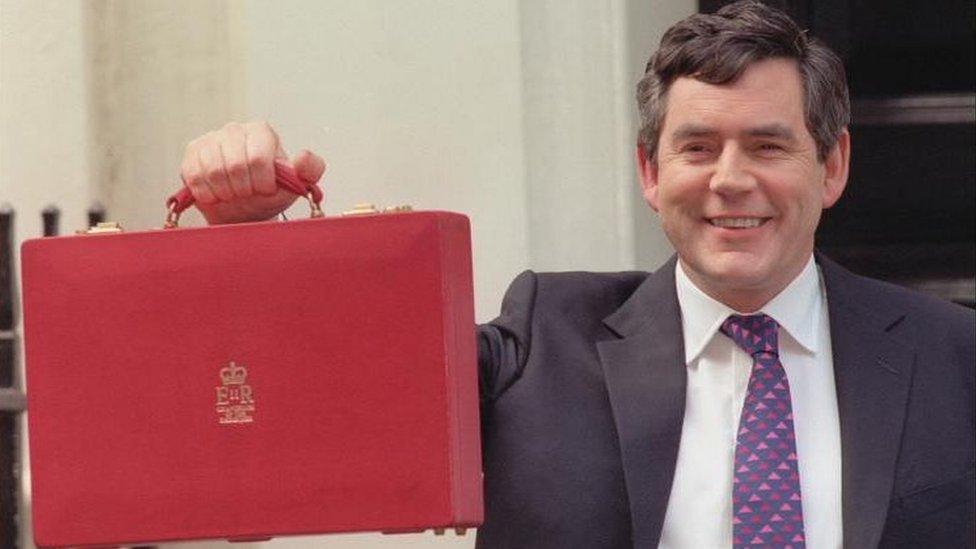
Free TV licences were brought in when Gordon Brown was chancellor
In 2001, free licence fees for the over-75s cost the government £365m. The report forecasts that by 2021 the current arrangements will cost the BBC £745m a year - constituting a fifth of the licence fee income.
A full report from Frontier Economics on longer-term funding options relating to the over-75s concession will be published in the next few weeks.
The BBC will then produce its own public consultation paper exploring various options.
Reforms to the policy may include raising the age of eligibility, introducing means-testing or removing the benefit from older people who live with younger relatives.
Writing in The Times, former cabinet secretary and chairman of Frontier Economics Lord O'Donnell said it was "a complex issue".
"Different approaches need to be considered in economic, financial, distributional and feasibility terms," he went on.
"Any final decision will ultimately be one for the BBC based on a wider consultation process."
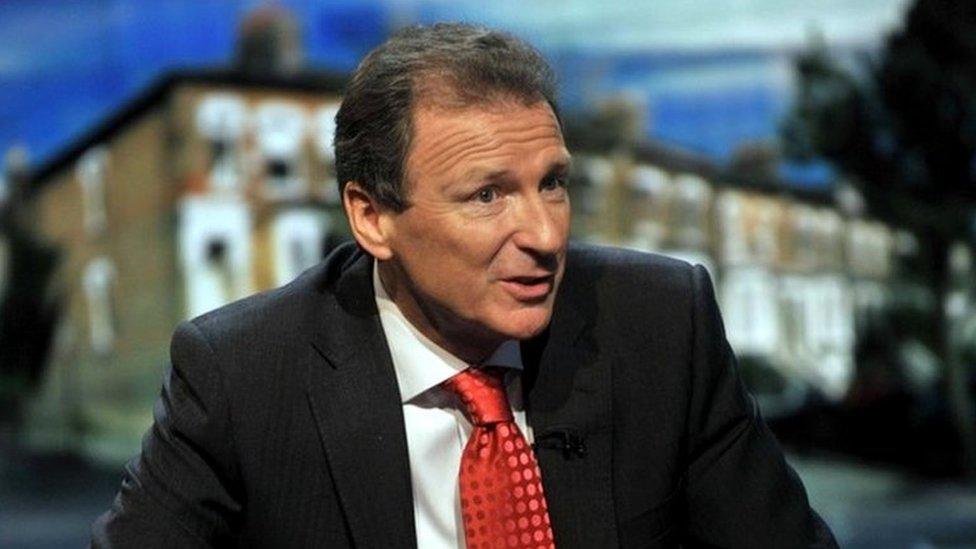
As Gus O'Donnell, Lord O'Donnell was cabinet secretary from 2005 to 2011
"This is an important discussion paper which we are studying carefully," said a BBC spokesperson. "The full report - which looks at a range of approaches the BBC could take - will be published shortly.
"As we have said, the government concession ends in June 2020. We are going to be consulting on what then happens. It might be a concession on the same terms, it might be different concession.
"There are important issues to consider. We will do nothing without consulting with the public. Everyone who wants to contribute will be able to do so."
Caroline Abrahams, charity director at Age UK, external, said there were "compelling arguments in favour of the over 75s TV licence concession".
"Despite some creditable improvement over the last decade, significant numbers of older people are still poor and progress in reducing pensioner poverty has stalled.
"The question for the BBC is therefore how they intend to fulfil the responsibility they have taken on as regards the TV licence concession for the over 75s... the majority of whom live on only modest incomes."

Follow us on Facebook, external, on Twitter @BBCNewsEnts, external, or on Instagram at bbcnewsents, external. If you have a story suggestion email entertainment.news@bbc.co.uk.
- Published22 February 2018
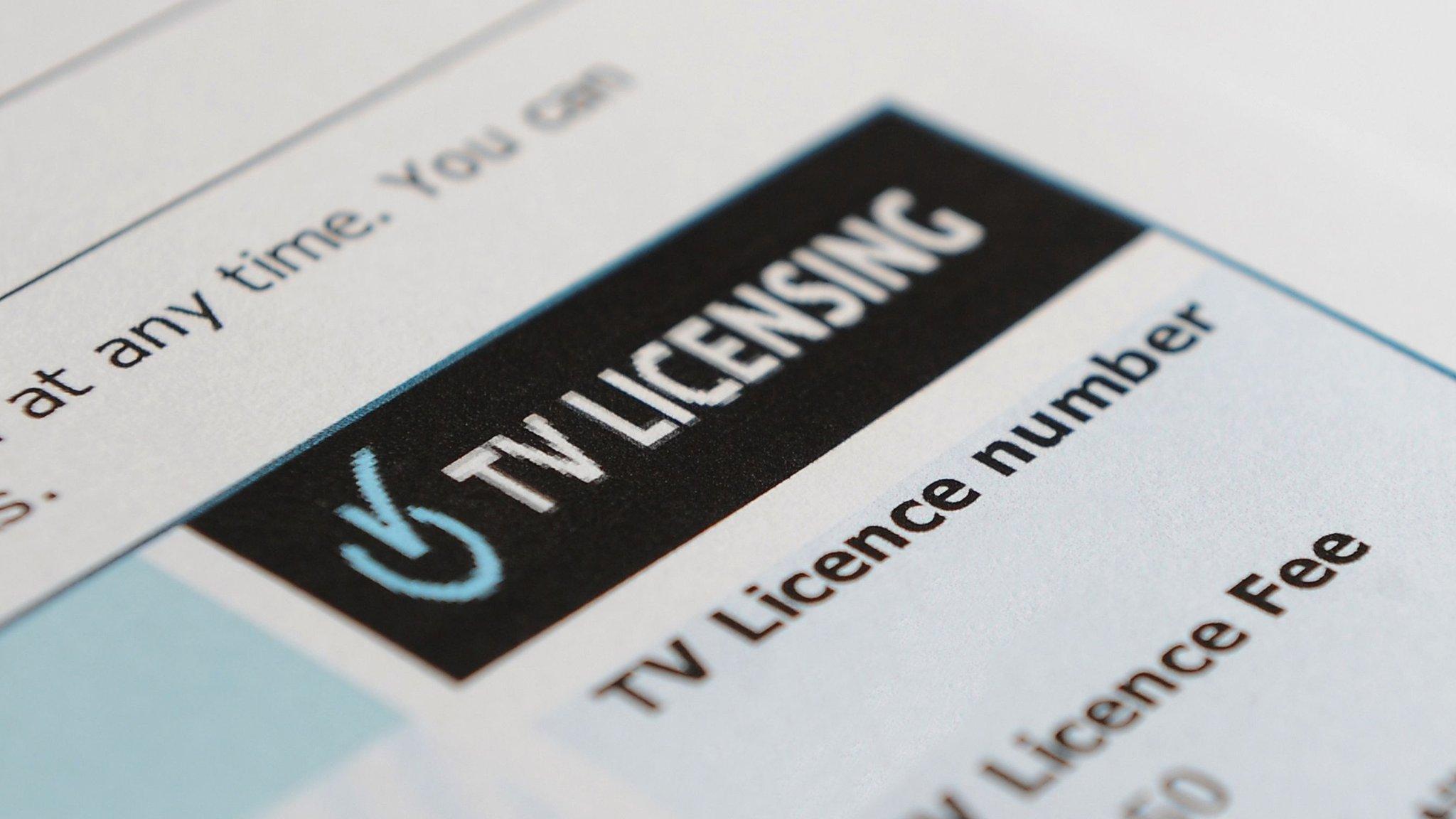
- Published25 January 2016
